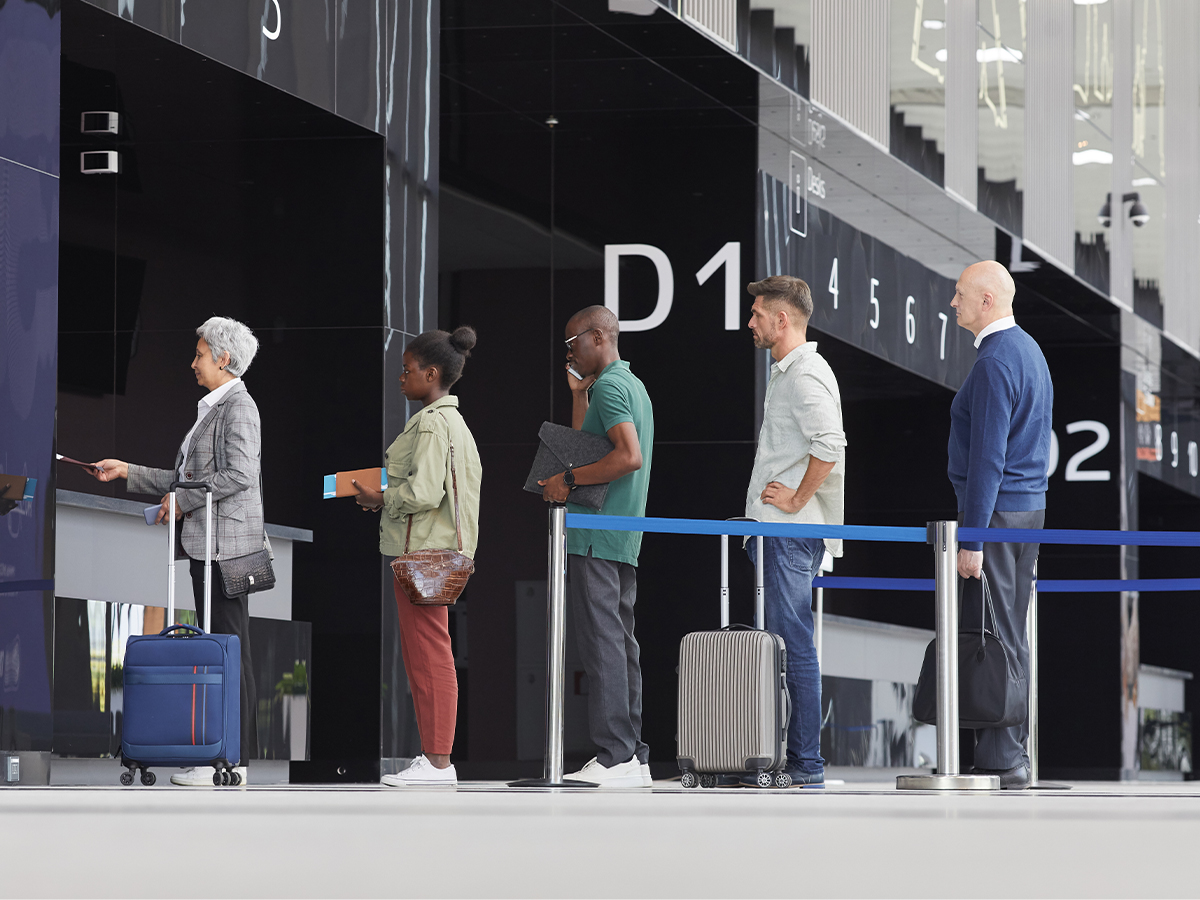
Panic-free airports & happy passengers with Queue Management
In the current post pandemic scenario, airports worldwide are hitting the headlines for the wrong reasons. There’s been an unprecedented surge of both domestic and international passengers which is only expected to rise in the near future.
February 16, 2023
In the current post pandemic scenario, airports worldwide are hitting the headlines for the wrong reasons. There’s been an unprecedented surge of both domestic and international passengers which is only expected to rise in the near future. For instance, Mumbai airport had 414,114 domestic passengers travelling on 2,798 flights on 10 December 2023 and 427,517 domestic passengers flying on 2,827 flights on 11 December. Such a huge influx of passenger footfalls has resulted in endless queues, extended wait times and annoying delays at integrated checkpoints.
Some studies have even pointed out that an average Indian air traveller spends more than 75% of that total travel time waiting at airports or connecting flights. While crowding and passenger frustration triggers security concerns of the authorities, they also threaten the physical and mental health of the passengers; especially those who have pre-existing conditions. Such a situation has unleashed chaos in airports causing disruptions in flight operations.
Airport authorities and airlines are severely under pressure tying to explore measures to tackle this situation. Conventionally most airports try to achieve this by increasing the number of counters, deploying additional manpower at several checkpoints, increasing the number of baggage carousels, aligning separate queues for senior citizens and so on. While additions in the physical infrastructure and manpower could make a difference to an extent, human errors can contest the overall effectiveness of such measures. The biggest challenge is to maintain the safety and security of passengers while ensuring their happiness.
With the emergence of AI and Deep Learning, the concept of smart airports or semi-sentient airports are already in place. Such solutions alleviate the operational burden of the authorities by facilitating real-time data on queue formations, average wait-time at counters, behavioural patterns and so on. Several airports in India have already started relying on AI-powered queue management solutions and are successfully on the way to achieving seamless passenger flow and operations.
With AllGoVision’s AI-Powered Queue Management Solutions , authorities can achieve the seemingly conflicting objectives of maintaining security rigor without affecting passenger-experience. Long line ups at different counters being the central reason behind chaos at airports, this solution helps authorities glean out queue properties, identify peak time and keep track on the behavioural patterns of queues. Through heat maps and flow maps, the authorities can equip themselves with the route statistics of passengers. It provides interactive visualizations that give data driven cues to the authorities on managing formations at various touch points like check-in, baggage, immigration and so on. Capturing the waiting time, counter service time and engagement time at several desks helps the airport maximize its operational efficiency by identifying the issues that crave immediate solution.
AllGoVision has already powered the Hyderabad GMR airport (which handles 50,000+ passengers per day) with a robust AI-powered Queue Management Video Analytics solution at its core.
AllGoVision’s Queue Management Solution can be combined with other surveillance features in the airport to strengthen the security while enhancing passenger experience. Furthermore, having such an intelligent solution will facilitate the journey of Airports to a ‘self-sentient’ future.
Contact Us